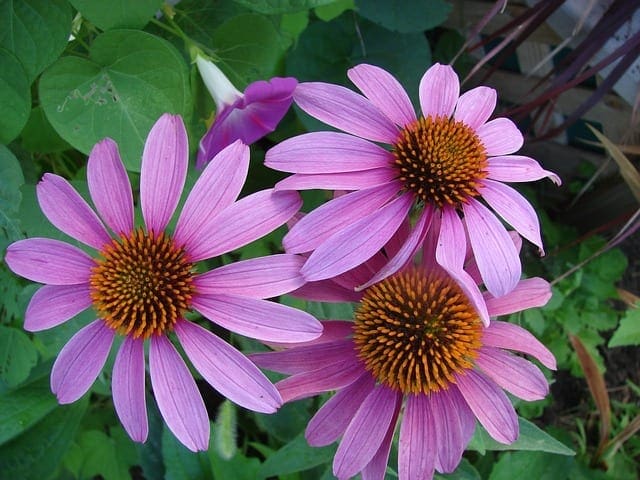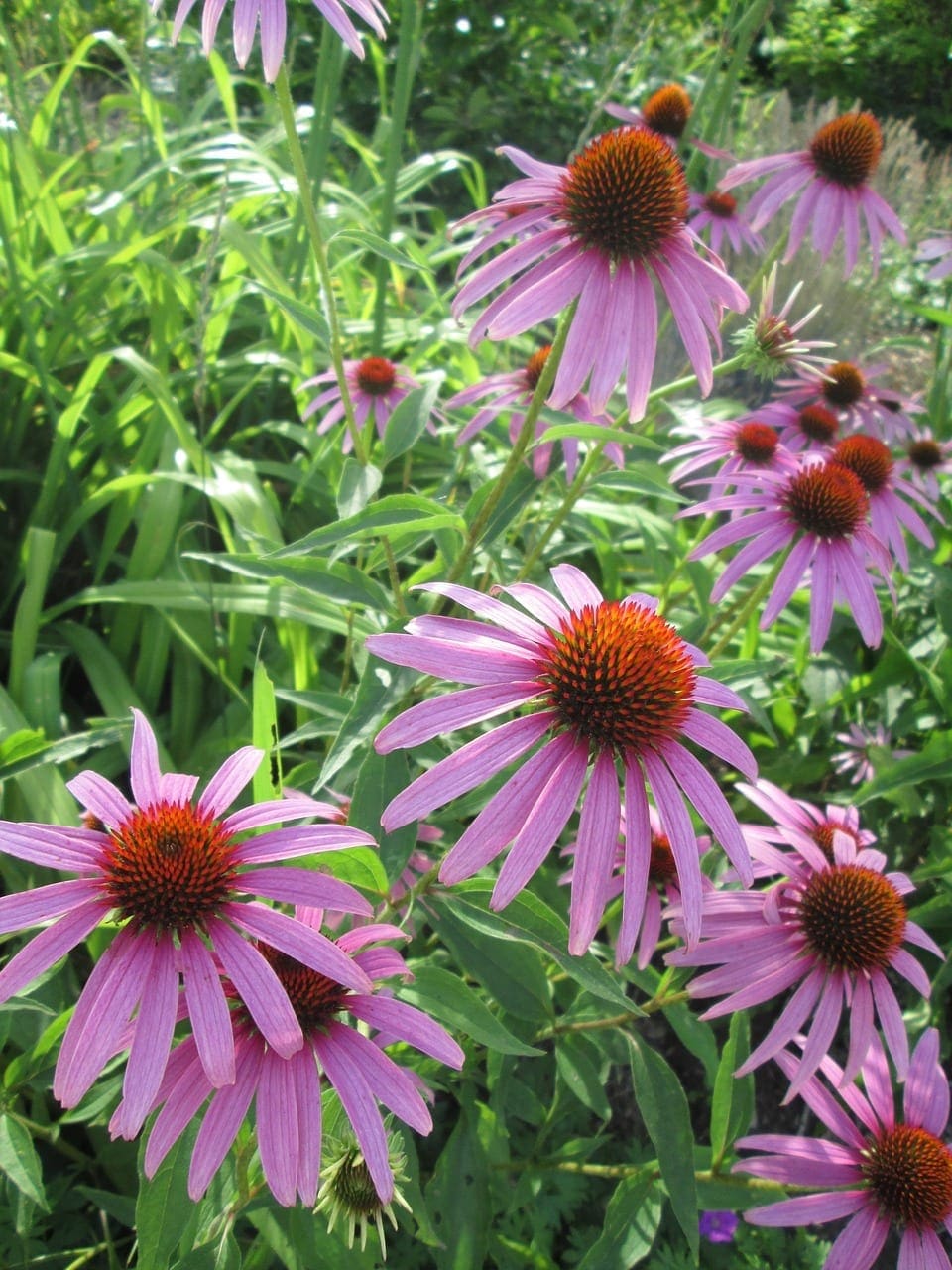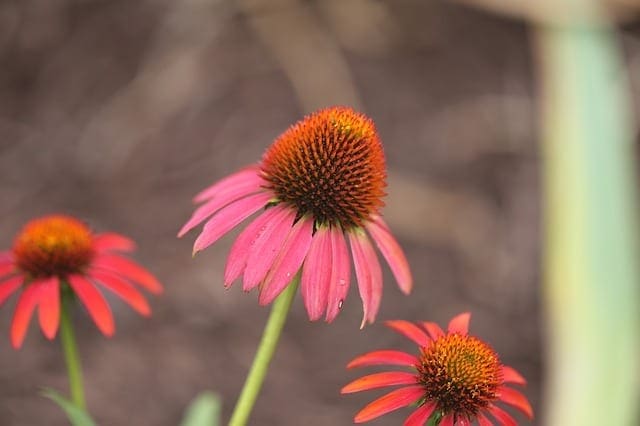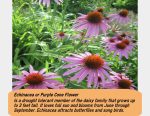Echinacea or Purple Coneflower is a hardy native perennial member of the daisy family. It grows in zones 3 to 9. It will grow up to two feet tall with heads four inches across. This gorgeous flower comes in a variety of colors. The original nine species have been crossbred to create many hybrids that would look great in any garden. The Purple Coneflower version is generally what we find growing wild along roadsides in NWA.

Echinacea Growing Conditions
Echinacea is very hardy withstanding drought, full sun, and heat. This makes Purple Coneflower a great choice to grow in xeriscapes and meadows. It is a great choice to use as a border flower. Echinacea likes to be planted in fertile well-drained soil. In full sunlight, it will go crazy and produce a ton of brilliant blooms all summer long.

When Does Purple Coneflower Bloom
Blooming from June to September Echinacea will attract pollinating bees, beautiful butterflies, and birds to your garden. If you can keep the birds away from the seeds until the flowers begin to dry out. The seeds will drop and reproduce again for years to come.
Native Echinacea Medicinal Value
The Great Plains Indians used Echinacea as a medicinal herb. It is believed to have antibacterial properties. Today it is sold as a supplement in many vitamin aisles and can also be found in cough drops. Echinacea has been used to treat anything from the common cold to inflammation and even HPV. A lot of people have even begun taking it to help boost their immune systems at the first sign of a cold. Please always consult a doctor before taking any new kind of medication.

The Purple Coneflower is a gorgeous native plant. It can be added to almost any Northwest Arkansas garden or landscape. See our list of other Native Plants that grow great here in our local area. If you need help with your garden design give 2 J’s a call.
